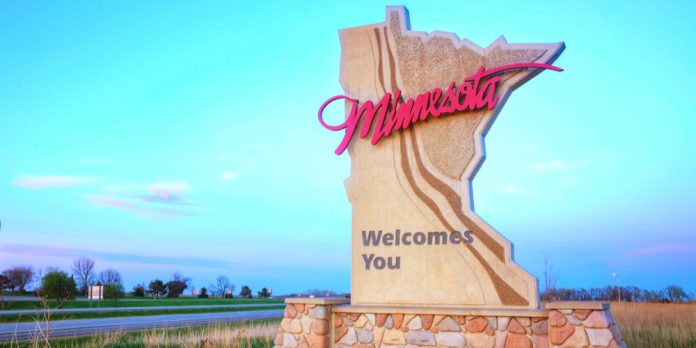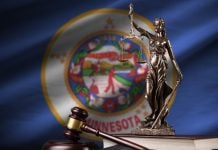Minnesota has taken a step towards opening its first sportsbooks after legislators this week proposed a bipartisan plan to legalize sports betting in the state.
A report by StarTribune states that, under the bipartisan state Senate proposal, in-person sports wagering would be allowed at tribal casinos, racetracks, and online via vendors that the tribes would oversee.
Sportsbooks could go live in the fall of 2023 if the proposal is signed into law. The proposal was put forth by state Senators Julia Coleman, Roger Chamberlain, and Karin Housley.
Coleman was quoted as saying: “This is something that people in Minnesota want to see happen — that they’re, quite frankly, traveling across the border to make happen. This is a win-win scenario for the people of Minnesota and for the state of Minnesota.”
The proposal is still being finalized, but like many other states, Minnesota would have a state tax on online gaming revenue, which would go into its general fund. Gamblers Anonymous will receive a percentage of either licensing fees or tax revenue as well.
Chamberlain said: “There’s a lot of places people want this money to go. I’ve been saying from the first day, this is not a big cash cow — this is about consumers and customers and having some fun.”
Currently, many Minnesotans travel to neighboring states such as Iowa to wager on sports. The Hawkeye State’s sportsbooks saw significant growth in 2021, recording a $2.04bn handle, up 255% on the previous year’s $575.2m. The state also has a tax of 6.75%.
Across the US, sports betting is currently legal in 33 states and the District of Columbia. Minnesota could be joining them, but there is expected to be opposition to the legalization due to possible addiction, religious views, and consumer protection.
Opposition to legalizing sports betting has come too from Minnesota tribes that have gaming compacts with the state. The North Star State has 22 compacts with all 11 of its federally recognized tribes.
Senator Karla Bigham stated: “This obviously has to be bipartisan, and the tribes need to be involved. And it is important that their voice is honored and heard, and that is the intent, I believe, of how we are going to move forward.”
It’s not known if the tribes had a role in preparing the current proposal. Minnesota Indian Gaming Association Executive Director Andy Platto recently said in a statement that tribal governments “have been examining the various ways sports betting has been implemented across the country and its impacts on tribal communities”.
He stated: “As gaming experts, tribes stand ready to share this expertise with lawmakers considering the future of sports betting in Minnesota.”
Chamberlain noted that to implement the Senate proposal, an additional tribal compact may be required for betting to take place on tribal land. However, he did add that the state could bypass a buy-in from the tribes and still legalize sports betting.
“I want to protect their interests — we’re going to negotiate with them. But I’ve said this more than once. In the reality of things, we do not need the tribes to do this,” he said.
Earlier this week, the American Gaming Association announced that US commercial gaming achieved its highest-grossing year ever in 2021 with total revenue of $53bn, breaking the previous record set in 2019 of $43.65bn by more than 21%.













